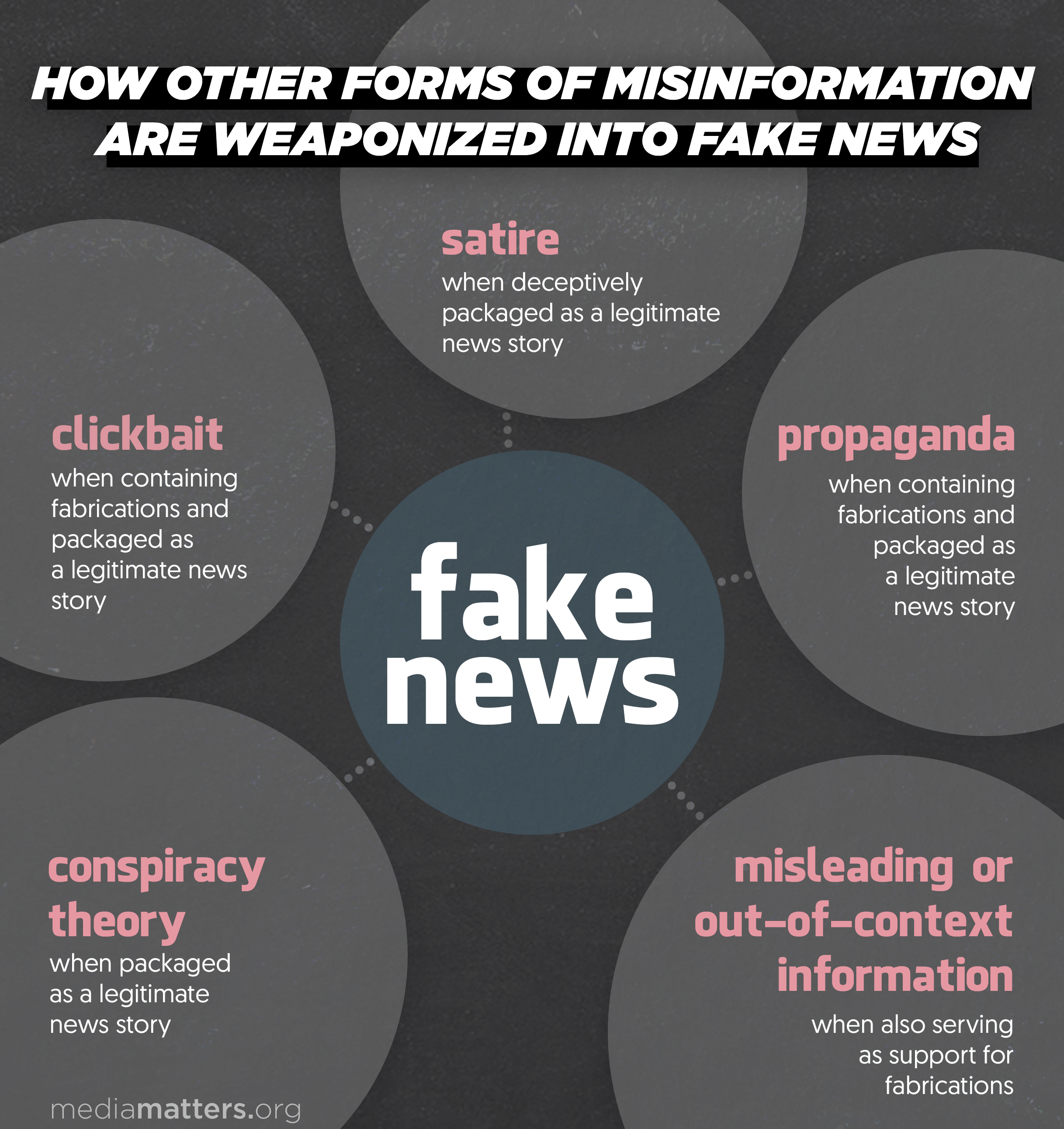The internet have provided people with the ease of access to information online, many of us are relying on the internet to obtain information either for work, education or to know what is happening around the world. However, as people are free to share information online, these information can be inaccurate. The worst part of information sharing is the spread of fake information or news.
What are fake news?
Fake News are contents that carries false information that are presented as real news, misleading the readers who came across the news. Media Matters shows how fake news can be distributed:

Fig 2: (Understanding The Fake News Universe, Media Matters 2016)
However, errors in news reports is not the same as creating fake news. Journalist may release news with inaccurate information due to the lack of necessary facts and they have no intention of fabricating stories.
Noah Tavlin further explains in the following video how false news can spread.
(How false news can spread – Noah Tavlin, TED-Ed 2015)
Why do we believe in fake news?
(Your Gullible Brain And The Spread Of Fake News, Seeker 2017)
So what are the consequences of fake news and misinformation?
Many people have difficulties discerning authentic news from fake news and there are people who make use of this opportunity to exploited the situation. People fabricate fake news for fame, wealth, slandering or to cover up a situation. This diverts the general public from the truth and they will be made to believe that the fake news are real. False information can also be used to influence the opinion of the general public and induce negative action, like the fake news on the Malaysian General Election 2013 which sparked unrest in Malaysians.
So how can one identify reliable and authentic information?

(Self-produced via Piktochart)
The media also influence how we obtain information online by filtering our search content. The video below explain how the media can affect our gathering of information and how can we avoid them:
(Filter Bubbles and Echo Chambers, MinuteVideos 2016)
Words: 301
References:
Libguides. (n.d.). Fake News: Selected Resources. Retrieved from libguides: http://libguides.scc.spokane.edu/fakenews
Media Matters. (2016, December 15). Understanding The Fake News Universe. Retrieved from Media Matters: https://www.mediamatters.org/research/2016/12/15/understanding-fake-news-universe/214819
The Straits Times. (2017, May 6). The negative impact of fake news. Retrieved from Straitstimes: http://www.straitstimes.com/opinion/the-negative-impact-of-fake-news
Hi Adriel, I liked your creative and extensive usage of both infographics and videos to carry your points across. I also liked what you mentioned about fake news, that it may have been created with malice intentions or it could have been just due to the lack of accurate information. While the internet remains free for all users, do you think fake content only exists in public domain? Or do you think it is possible for fake news to be available all over the media that we consume? (eg. newspapers, television news etc.) Also, do you think filter bubbles are only meant to hinder our sourcing of information or if not, why were they created in the first place? let me know what you think! 🙂
(126 words)
LikeLiked by 1 person
Hi Jochi,
Thanks for your kind comment! I am glad that you liked the visuals included in this post.
Fake content does not only limited to the public domain. Private domain can also contain fake content. Let’s put aside that there may be users who publish fake content with hidden agenda and look at other factors. As I have mentioned, lack of information can also be a source of fake content. People can publish content based on how they interpret information from other sources (online, word-of-mouth, news) and the information may be distorted. Continuous sharing of a subject may be prone to distortion of information. This distortion is due to our digital differences as individuals have different perception of things and interpret information differently.
Filter bubble can narrow our perspective on the information we received online. In this sense, it can hinder our sourcing of information as it limits our search engine and the information we are exposed to online. However, there is some benefits to the filter bubble. It is an algorithm that online media adopt to control the information that reach you using the patterns of your internet activities. It shows you the information that may be relevant to you and hence it also enable us to search for information relevant to us at an efficient and quicker pace.
These are my personal opinions, what do you think?
LikeLike
Hi Adriel, yes I agree that fake content can be everywhere and is not limited to the public domain. In this day and age despite the fact and partially also because that we’re in a digital age, fake content is present everywhere – in non-official mediums (eg. personal blogs) as well as official media (Eg. nationwide television news). I’d like to take Taiwan’s news for example – the news broadcasting agencies in Taiwan has a tendency to release information – in an exaggerated way. It may not necessarily be based on fake statistics/ content, however, the information is always communicated in an exaggerated tone which misleads the seriousness/tone of the overall news. The exaggerating factor is what they believe keeps viewerships high as they can continuously attract the attention of viewers.
When it comes to filter bubbles, it is a love-hate relationship in my opinion as there are always two sides, pros and cons to everything. I love how they make my usual “go to”s on websites and applications so convenient and straight to the point, yet I hate how they decide what content should appear on my browsers. I guess after all it’s how you make the best out of it 🙂
LikeLiked by 1 person